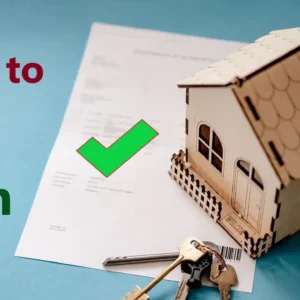The cost of a college degree can be daunting amount. Fortunately, student loans are available to help you, but they do come with many cautionary tales of disaster. Simply taking all of the money you can get without considering how it affects your future is a recipe for disaster. So keep the following in mind as you consider student loans.
Don’t worry about not being able to make a payment on your student loans if something unexpected like job loss has happened. Usually, most lenders let you postpone payments if some hardship is proven. However, you may pay an increase in interest.
Once you leave school and are on your feet, you are expected to start paying back all of the loans that you received. There is a grace period for you to begin repayment of your student loan. It is different from lender to lender, so make sure that you are aware of this.
If you have extra money at the end of the month, don’t automatically pour it into paying down your student loans. Check interest rates first because sometimes your money can work better for you in an investment than paying down a student loan. For example, if you can invest in a safe CD that returns two percent of your money, that is smarter in the long run than paying down a student loan with only one point of interest. Only do this if you are current on your minimum payments, though and have an emergency reserve fund.
Pick a payment option that works best for you. Most lenders allow ten years to pay back your student loan in full. If this isn’t going to help you out, you may be able to choose other options. If you take a loan at a higher interest rate, for example, you can extend your time to pay. Another option some lenders will accept is if you allow them a certain percentage of your weekly wages. Some loans’ balances get forgiven after 25 years.
For those having a hard time paying off their student loans, IBR may be an option. This is a federal program known as Income-Based Repayment. It can let borrowers repay federal loans based on how much they can afford instead of what’s due. The cap is about 15 percent of their discretionary income.
If at all possible, sock away extra money toward the principal amount. The key is to notify your lender that the additional money must be applied toward the principal. Otherwise, the money will be applied to your future interest payments. Over time, paying down the principal will lower your interest payments.
Be sure you understand the terms of loan forgiveness. Some programs will forgive part or all of any federal student loans you may have taken out under certain circumstances. For example, if you are still in debt after ten years have passed and are working in a public service, nonprofit or government position, you may be eligible for certain loan forgiveness programs.
To reduce the number of student loans, work as many hours as you can during your last year of high school and the summer before college. The more money you have to give the college in cash, the less you have to finance. This means less loan expense later on.
Take advantage of student loan repayment calculators to test different payment amounts and plans. Plug in this data into your monthly budget and see which seems most doable. Which option gives you room to save for emergencies? Are there any options that leave no room for error? When there is a threat of defaulting on your loans, it’s always best to err on the side of caution.
To make sure that you do not lose access to your student loan, review all of the terms before signing the paperwork. If you do not register for enough credit hours each semester or do not maintain the correct grade point average, your loans can be at risk. Know the fine print!
To make the student loan process go as quickly as possible, make sure that you have all of your information in hand before you start filling out your paperwork. That way, you don’t have to stop and go looking for some bit of information, making the process take longer. Making this decision eases the entire situation.
As you explore your student loan options, consider your planned career path. Learn as much as possible about job prospects and the average starting salary in your area. This will give you a better idea of the impact of your monthly student loan payments on your expected income. You may find it necessary to rethink certain loan options based on this information.
To make sure you minimize how much debt costs you, get into AP classes and dual credit classes that you can take in high school. You essentially have to pay for fewer hours, thanks to getting college credits while still in high school.
To keep your student loan borrowing costs to a minimum, consider working as a resident advisor during your last three years of undergraduate study. While you will be living in a dorm with freshmen, serving as the leaders of the building, you will also receive free room and board, which makes the duties somewhat less onerous.
The information above is just the beginning of what you should know as a student loan borrower. You should continue to educate yourself about the specific terms and conditions of the loans you are offered. Then you can make the best choices for your situation. Borrowing wisely today can help make your future that much easier.






